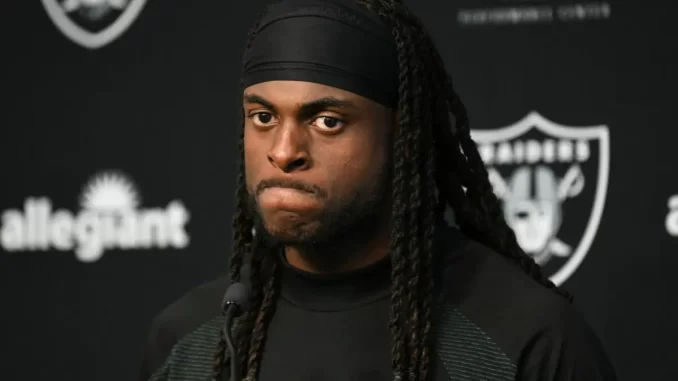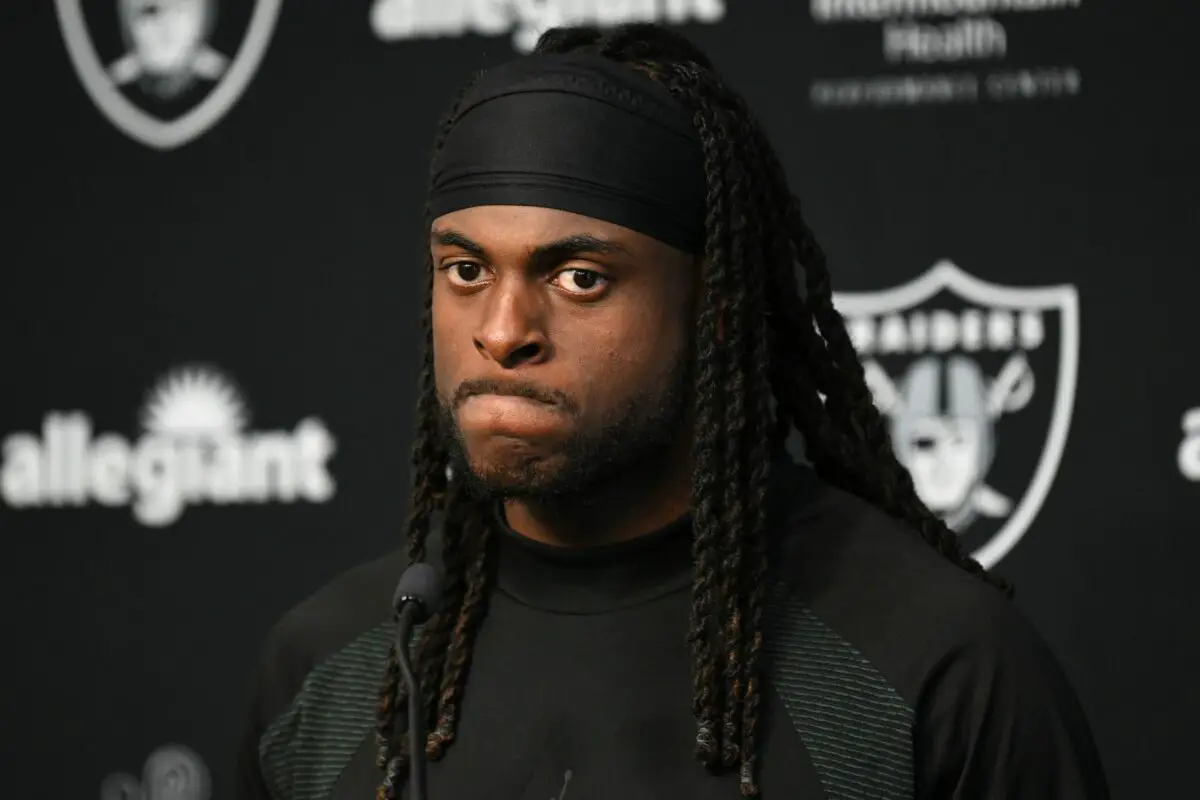
In the ever-evolving landscape of the NFL, player reactions to team decisions can often be as riveting as the games themselves. Recently, Davante Adams, the star wide receiver for the Las Vegas Raiders, offered a candid reflection on a particular team move that did not sit well with him.

His revelation provides an intriguing glimpse into the dynamics between players and management, and the impact such decisions can have on team morale and performance.
Davante Adams, renowned for his exceptional route-running and hands, joined the Raiders in 2022 amidst considerable fanfare. Coming off a standout tenure with the Green Bay Packers, Adams’ arrival in Las Vegas was seen as a game-changer for the Raiders’ offense. His presence was expected to elevate the team’s passing game and add a new dimension to their offensive strategies.
However, despite the high hopes and early excitement, not all team decisions have been received positively by the star receiver.
In a recent interview, Adams expressed his discontent with a specific move the Raiders made during the off-season. Without mincing words, he criticized the decision to part ways with one of the team’s key offensive linemen, citing it as a move that he detested.
The departure in question involved the release or trade of a veteran offensive lineman who had been a cornerstone of the team’s protection scheme.
Adams’ frustration centers around the critical role that offensive linemen play in ensuring a quarterback’s protection and creating the necessary time and space for skilled receivers like himself to operate effectively.
The offensive line’s performance directly impacts the quality of the passing game, and any significant changes to this unit can ripple through the entire offensive strategy.
The player in question, whose departure has sparked Adams’ critique, had been a consistent presence on the Raiders’ line and was widely regarded as a reliable protector for the quarterback. Adams’ disappointment highlights the intricate connection between a team’s roster decisions and player performance on the field.
For a receiver like Adams, whose success is inextricably linked to the effectiveness of his offensive line, the loss of a trusted lineman represents more than just a shake-up; it potentially undermines the offensive cohesion and efficiency.
In his interview, Adams elaborated on his concerns, stating, When I heard about the move, it was definitely a blow to me. This guy was a big part of what we were trying to build here. Losing him affects not just the protection for our quarterback but also the timing and rhythm of our offense. It’s something that I think could have been avoided.
Adams’ comments underscore a broader issue within professional sports where strategic decisions made by management can sometimes clash with the sentiments and perspectives of key players. While management decisions are often guided by a mix of financial considerations, future planning, and team dynamics, players like Adams are deeply invested in the immediate impact of these moves on their performance and team success.
The Raiders’ decision to part with the lineman might have been influenced by a variety of factors, including salary cap constraints, long-term team strategy, or the pursuit of other player acquisitions. However, Adams’ reaction emphasizes the importance of communication and alignment between management and players to ensure that all parties are working towards a unified vision for the team’s future.
As the Raiders move forward with their revised roster, Adams’ critique serves as a reminder of the complex interplay between team decisions and player perspectives. The effectiveness of the Raiders’ offense in the coming season will be closely watched to see how well the team adapts to the changes and how they impact the overall performance on the field.
In conclusion, Davante Adams’ candid expression of his discontent with the Raiders’ decision to release a key offensive lineman provides valuable insight into the challenges and considerations faced by professional athletes.
It highlights the delicate balance between team management decisions and player satisfaction, and the critical role that each element plays in shaping a successful and cohesive team. As the season progresses, Raiders fans will be keenly observing how these dynamics unfold and what impact they will have on the team’s performance and prospects.
Leave a Reply